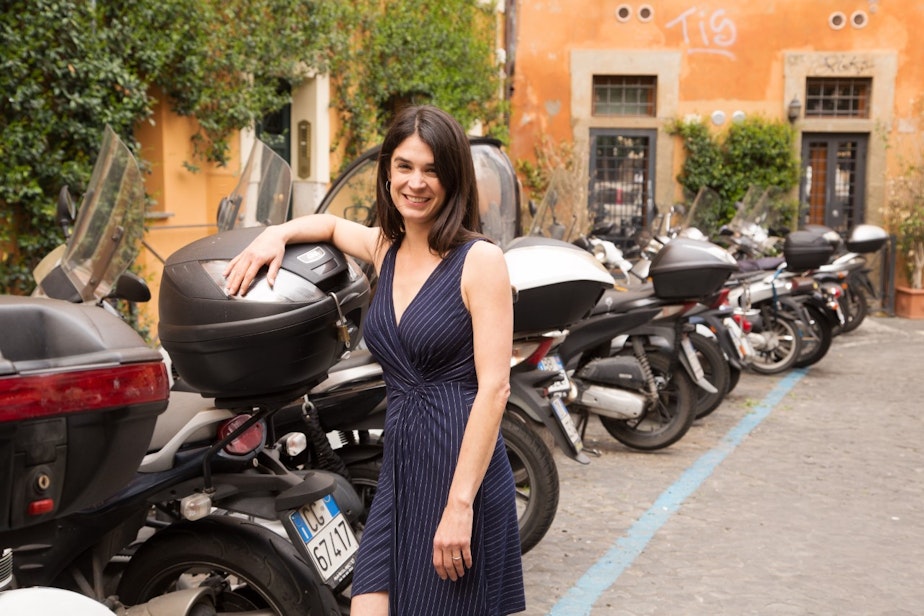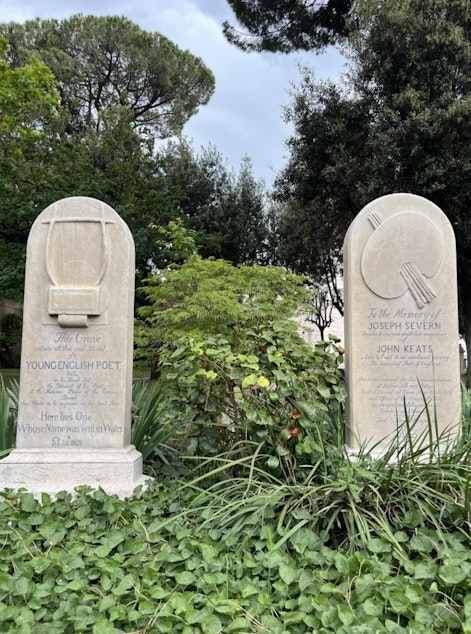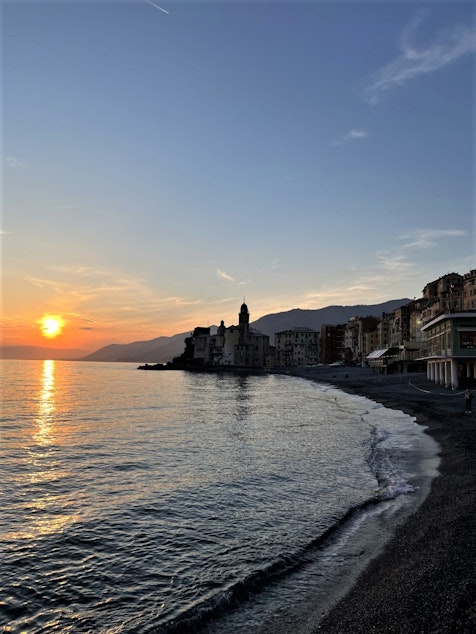I traveled to Italy after 2 years of pandemic isolation. Then I got Covid

I
was in Italy at Lake Como when I learned I had Covid.
My partner Derek and I had rented the perfect apartment. It was down ninety-three steps, and hooked into a hillside overlooking the water in the small town of Nesso. In the evening, the swallows swung through the air, and amber light slipped through half-closed windows. We sat on the porch, and opened some red wine.
Derek and I had been driving all day, across the Swiss Alps to get to this little place. We were both tired, but I also had a runny nose and a dry throat.
“Allergies,” I said, because it had to be.
I had hardly left my home in two years. I’d locked myself away, watching out for neighbors, friends, parents, and my partner. I was finally back in the world, triple-vaxxed and ready to see anything new — anything besides two side-by-side lines on a home Covid test. That possibility has made many a desperate traveler think twice about buying plane tickets.
Sponsored
In the morning, I had a sore throat and my eyes wouldn’t stop watering.
“You have to do the test,” Derek said, and I knew I did. But I needed one more moment to pretend I didn’t.
I sent him into the pharmacy for allergy medication. Then we laid out two Covid tests on the dresser, swabbed our noses, and gave each other a look like, “This is us now. Who will we be in fifteen minutes?”
I couldn’t watch.
Instead, I went outside and looked at the white waves created by a boat crossing the deep blue lake. Further down the hill, an old man fed his chickens.
Sponsored
"Please no, please no, please no,” I repeated.
In less than five minutes Derek joined me on the porch. “I’m afraid I have some bad news,” he said.
“It’s positive?!” I said.
He nodded sadly. “Just you, not me,” he said.
My reaction was not dignified. The tears came swiftly and fiercely, in an ambush of disbelief, disappointment, and fear. What did this mean? How bad would it get? How do I even care for myself when I’m on the other side of the world?
Sponsored
This summer, roughly 93 million American adults are expected travel at least once; even more will travel at least two times, according to a survey published by The Vacationer. That’s not quite pre-pandemic levels, but it’s close — about less than 3% of travel in 2019. And of course, some of those adults, like me, will catch Covid along the way.
I wrapped a blanket around my shoulders and put on a mask. The rental apartment was perfect, even for Covid. It had separate bedrooms and several outdoor porches. The wide and generous lake shot a strong breeze up the hillside and through our open windows. We were now living in the wind.
The Italian air smells of flowers, and dough, and smoke, and I hoped it was just magical enough to make my illness brief. I wanted to enjoy life abroad, and we had reservations and limitations that wouldn’t wait for sickness. The rental at the lake couldn’t be extended. Our next hotel in Camogli, on the Italian Riviera, was already paid for. We had to continue on.
“The name of Italy has magic in its very syllables,” said the 19th century writer Mary Shelley.
The next morning, masked and driving our rental car toward the coast, I thought of Shelley's contemporaries, who traveled to Italy to convalesce, praying that the breeze off the Ligurian Sea might heal them and bring them back to life.
Sponsored
I thought of the romantic poet John Keats, sent to Rome with tuberculosis, hoping that the hot air could dry out his lungs. I remembered the Protestant Cemetery where Keats now lay, and the still, grey headstones carved with tales of long, painful illnesses that ended in Italy.

I wasn’t worried that I would die. In truth, I didn’t feel that bad — but I did feel outside of the world, like I would never be a part of it again. In Camogli, I was the figure walking slowly along the shore, seeking out isolated benches and watching the sunset above a crisp FFP2 mask, the European equivalent of a KN95. All around me, locals and tourists flirted, dined, and drank. I ate takeout at an outdoor table alongside the hotel parking lot.

Many Americans will travel this summer and some, like me, will catch Covid. But regardless, “It is a very good time to travel,” says Professor Ali Mokdad, an epidemiologist at the University of Washington. “Covid-19 is declining right now. We will see a steady number of infections…but not a bump that you could attribute to travel. If you want to see your dad, or your mom, or your grandchildren, do it this summer. Don’t do it in the winter.”
Sponsored
After first experiencing symptoms, I tested positive for the next ten days. No matter how sick or well I felt, the two lines appeared every morning, meaning I'd spend yet another vacation day on the fringe, a danger to Derek and everyone else. I became so accustomed to ritual disappointment, that when it finally happened — just one red line — the elation was total. My heart started pounding. I laughed and cried at the same time. I could rejoin the world.
If you’re one of the millions traveling this summer, “take some tests with you,” advises Professor Mokdad. And if you end up positive, “You can take a hike. You can see people from a distance. It’s doable.”
And for me, it was. Not ideal, but a lovely, lonely kind of “doable.”
By the time I tested negative, we were in Rome, and I crossed the Tiber River to see John Keats’ grave. Like mine, his illness ended in Rome, though not the way he wished.
The Italian air, it turns out, is not magic. But as I sat beside his headstone, now fully recovered, the scent of the air with its swirling mix of smoke, dough, and flowers sure smelled like it.




